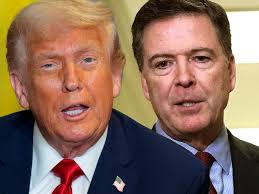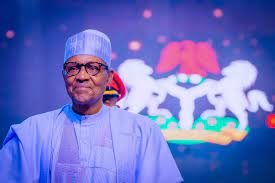Former FBI Director James Comey has vowed to fight federal criminal charges brought against him, declaring his innocence while accusing his longtime rival, President Donald Trump, of pursuing political retribution.
In a video message posted to Instagram on Thursday evening, hours after a grand jury indicted him, Comey appeared calm but resolute. Wearing a suit and tie, he told viewers:
“My family and I have known for years that there are costs to standing up to Donald Trump. But we couldn’t imagine ourselves living any other way. We will not live on our knees, and you shouldn’t either. My heart is broken for the Department of Justice, but I have great confidence in the federal judicial system. And I’m innocent. So let’s have a trial.”
The indictment makes Comey the first FBI director in U.S. history to face federal criminal charges. A grand jury in the Eastern District of Virginia returned two counts against him: making a false statement and obstructing a congressional proceeding, both tied to testimony he gave to the Senate Judiciary Committee on September 30, 2020.
Prosecutors allege Comey lied when he denied authorizing an FBI official to act as an anonymous media source and that his testimony obstructed Congress. If convicted, he faces up to five years in prison.
The charges follow mounting pressure from Trump, who has repeatedly demanded prosecutions of his opponents. Just last week, acting U.S. Attorney Erik S. Siebert resigned after Trump publicly demanded his removal. He was quickly replaced by Lindsey Halligan, a former Trump defense lawyer, who was sworn in as interim U.S. attorney on September 22.
Comey’s indictment also came just days after Trump blasted Attorney General Pam Bondi on social media for “doing nothing” about his adversaries. “They impeached me twice, and indicted me (5 times!), over nothing,” Trump wrote. “Justice must be served, now!!”
The case has shocked legal and political observers, as federal prosecutors in Virginia had previously concluded there was insufficient evidence to pursue charges. A Trump-appointed U.S. attorney at the time reportedly agreed with that assessment but later resigned under presidential pressure.
The development deepens the years-long feud between Trump and Comey, dating back to the FBI’s 2016 probe into Russian election interference. Trump ultimately fired Comey in May 2017, a move that triggered the appointment of Special Counsel Robert Mueller.
By defiantly repeating “let’s have a trial,” Comey cast his indictment as not only a personal battle but also a test of institutional independence. Critics call the case a blatant example of Trump weaponizing the Justice Department, while prosecutors insist they have the evidence to prove Comey lied under oath.
For now, the indictment ensures one of the most polarizing figures of the Trump era is once again at the center of a political and legal storm—pitting a former president against the man who once investigated him, with the credibility of America’s justice system on the line.




